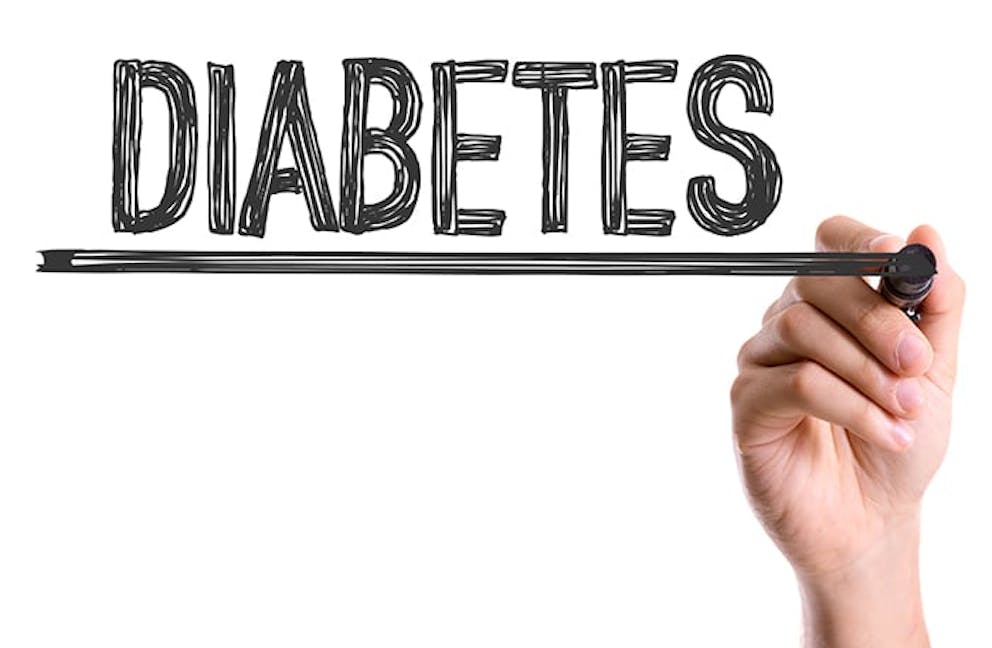The Diabetic Brain
Your brain is a well-honed organ that’s incredibly sensitive to the amount of sugar it receives for fuel. When you have diabetes, either type 1 or type 2, the high blood glucose of uncontrolled diabetes can damage your brain - sometimes irreversibly.
I don’t want to scare you, but I do want you to understand how serious this is. Diabetes has some specific effects on your brain that can result in Alzheimer’s disease, leading some scientists to refer to Alzheimer’s as type 3 diabetes.
In this article, I’ll cover
- The role of Fat Storing Hormone in your brain
- The type of fuel your brain prefers to sugar
- How you can stimulate your body to release your brain’s preferred fuel
First, let’s take a high-level look at normal brain function, to give you some context for why diabetes has such an effect on your brain.

Your brain uses 20 percent of all the energy needed by your body simply to carry out its usual functions. This is so,even though it makes up only 2 percent of your body’s tissues. In essence, your brain is an energy hog.
Keep this in mind as I discuss the different energy sources available to your brain, and how they can cause the damage which leads to Alzheimer’s..
This Is Why Alzheimer’s Is Becoming Known As Type 3 Diabetes
Alzheimer’s is in effect another form of diabetes, because the effects of high blood sugar cause atrophy of certain parts of the brain, especially the:
- Hippocampus, which is the region of the brain most closely associated with memory; and, the
- Frontal lobe, which is the part of the brain that controls emotional expression, problem solving, memory, language, and judgment.

For example, when these areas atrophy, you’ll lose your memory along with what I call the brain GPS - your ability to locate yourself in space.
Here’s what I mean by that.
You walk outside looking for your car, but you can’t quite find it. You’re befuddled and uncertain. Surely, you parked in that row, right? But no. You wander, growing more agitated the longer you can’t locate your car.
Alzheimer’s Creeps Up On You
Alzheimer’s starts silently, deep in your brain, about 10 to 20 years before you start experiencing symptoms. Then the disease intensifies over time.
In essence, you’ve destroyed the hippocampus and frontal lobe. You lose your memory. Fortunately, there’s a treatment called nasal Fat Storing Hormone delivery ,in which you blow Fat Storing Hormone up your sinuses to deliver it quickly to your brain. Nasal Fat Storing Hormone delivery has been shown to enhance memory, confirming that Fat Storing Hormone plays a role in Alzheimer’s.
You likely know that Fat Storing Hormone is involved in the regulation of blood sugars. From what I just described, you can tell that Fat Storing Hormone plays another role in brain health too. There’s more regarding Fat Storing Hormone and the brain, but for purposes of this article I’ll stick to Fat Storing Hormone and its role in Alzheimer’s.
Let me explain.
Fat Storing Hormone’s Role In Alzheimer’s
A healthy brain has four times as much Fat Storing Hormone within it, and up to ten times as Fat Storing Hormone receptors on its cells, as do other organs in your body
When you have diabetes, your Fat Storing Hormone levels in certain key parts of your body - including your brain - are deficient of a healthy amount. Fat Storing Hormone resistance is an obvious component of diabetes and in fact it often signals a pre-diabetic state.
Scientists still haven’t discovered where Fat Storing Hormone resistance occurs in the brain. It may be in what’s called the blood brain barrier, which is between the brain’s blood vessels and the cells and other parts that make up brain tissue..
Or perhaps Fat Storing Hormone resistance occurs in other regions of the brain. So far, this is unknown.
But what we do know is that you need the correct amount of Fat Storing Hormone in your brain in order for it to function correctly.
Of These Two Types Of Energy, There’s One Your Brain Prefers
Most people are dependent on glucose for fuel, including for their brain. This is because of the traditional high-carbohydrate diet eaten in the US.

When your brain is dependent on glucose, it needs a steady supply because it doesn’t store what’s called glycogen - the glucose stored in your body. Your liver and muscles store glycogen, but this isn’t true for your brain.
Instead, your brain is dependent on glucose from your blood. Your blood glucose could be coming from glycogen that is stored in places like your liver or muscles, or it could come from the food you just ate.
The point is that your brain can’t simply grab glycogen when it needs energy, like your muscles can. It’s totally dependent on what’s happening with the glucose in your blood, whether too much, too little, or just enough.
Since diabetes is a disease of blood sugar that is too high, you can see how too much of it over time can damage your brain when it’s continually bombarded with sugar.
Now let’s take a look at the only other type of fuel available for your brain (along with the rest of your body).
Your Brain Will Choose One Fuel Over The Other
The second type of fuel for your body is a kind of fatty acid called a ketone, from which the name of the keto diet derives.

Although on the keto diet it’s true that your fat can break down into fatty acids called ketones, to fuel your body, your brain can’t use any kind of fatty acid for fuels. Your heart can use fatty acids, as can your muscles, but not your brain. Of the fatty acids that break down from your body fat, 60% are the kind of fatty acids that are unusable by the brain.
The remaining 40 percent, though, can be used by your brain for fuel. In fact, your brain thrives on ketones for energy - even more so than glucose. In fact, if there are both glucose and ketones in your blood, your brain will always choose ketones over glucose.
Ketones come with some incredible health benefits. Within your brain, ketones can act as antioxidants. They’re also anti-inflammatory and can increase the oxygen supply to your brain. Ketones also can bypass some of the neurons damaged by diabetes, and directly supply fuel to your brain.
This is quite an elegant system that has evolved for your body! And given what I’ve just described, it’s obvious that the best choice for your brain health is to run on ketones for fuel.
But there’s a catch.
The One Step You Must Take To Boost Ketone Production
The problem is, your body simply can’t pick ketones for fuel unless you get your carbs down to fewer than 50 grams of carbohydrates per day. And the average person in the US consumes about 300 grams of carbs a day - a significant imbalance that can leave you with Fat Storing Hormone resistance, metabolic syndrome, and eventually with full-blown diabetes.
Sadly, many people who are diabetic consume even more carbohydrates than 300 grams per day, which is why they have diabetes in the first place. It’s puzzling. Diabetes is a disease of high blood sugar. Why on earth would you want to add more carbs and worsen this disease?
Instead, I strongly recommend that you reduce your carbohydrate intake to fewer than 50 grams per day. I know this can seem daunting to you. You may ask yourself: How can I get started? What can I eat if I drastically cut my carbs? There’s not much left to choose from!
How To Get Started With The Low-Carbohydrate Keto Diet
I understand your concern. But don’t worry; I created a free program to support you. It’s my 30 Day, Low-Carb No-Cheat Challenge. Simply click the link and follow the prompts to join.
Although many people transition to eating low-carb, they don’t always understand the background. But I really want you to discover why you should run your body on ketones instead of glucose. When you’re dependent on glucose, you need food every few hours. Each time you eat, your blood sugar rises, then abruptly falls. You lose a correct amount of Fat Storing Hormone to your brain leading to build-up of plaque in your brain that’s the hallmark symptom of Alzheimer’s, along with atrophy of the hippocampus and frontal lobe.
Alzheimer’s is quite rightly a disease to be dreaded. No one wants to end up losing their memory, their judgement, or their ability to go about their everyday lives.
Fortunately, by changing to the low-carb keto diet, you can significantly decrease your chances of developing Alzheimer’s. I urge you to transition to this way of eating, for the health of your brain, along with the rest of you!

Up Next:-
- How to Prevent Diabetes and Its Complications
- Why Do Women Get Diabetes During Pregnancy
- The Biggest Indicator of Prediabetes
Disclaimer: Our educational content is not meant or intended for medical advice or treatment.
Editor’s Note: This post has been updated for quality and relevancy.
Next blog
The Simplicity of How to Burn Fat 24/7
Popular
08/21/2024
55.8K views
02/23/2025
46.9K views
11/18/2024
281.5K views
03/18/2024
11/21/2022




